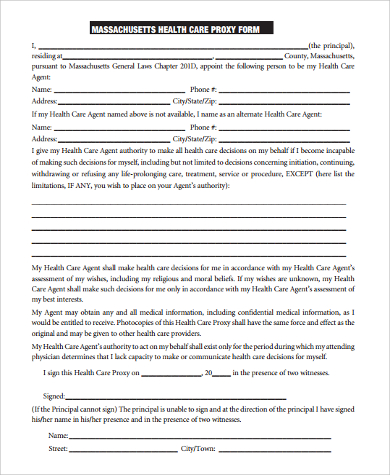But cases are speeding up in the U.S., which has become the international center for the infection, with approximately 6 million verified cases and 183,000 deaths or the equivalent of one in five COVID-19 fatalities worldwide. "It's really frustrating to have to divert so much political energy towards what should be a no-brainer." One strength of the Canadian system to shine through during the pandemic is that everyone is insured, Martin said.
Medical facilities deal with a single insurance provider, she said, and that implies care is much better coordinated throughout organizations. "Any person that requires COVID care is going to get it," she said. Dr. Ashish Jha, who has directed the Harvard Global Health Institute and now works as the dean of the Brown University School of Public Health, has a slightly various take.
and Canada present "a reflection that has nothing to do with the underlying health system" but rather reflects leaders and their political will and priorities. While America's health care system is amongst the world's best in regards to development and technology, Jha stated that U.S. political leaders have actually shown themselves to be reluctant to trade off short-term discomfort of lockdowns and job losses for a long-lasting public health crisis and economic instability.
They likewise didn't increase screening rapidly enough to efficiently keep an eye on when and where outbreaks would happen and consistently weakened the public health neighborhood in its efforts to efficiently react to the infection. He said leaders in the U.S. have actually not provided a clear constant message or definitive management to unify the nation and get everyone moving in the very same direction.
" It's actually frustrating to have to divert a lot political energy towards what should be a no-brainer," Jha said. "This is the time when everyone who needs to be checked, is evaluated everyone who needs to be looked after is looked after." And that begins with uniform access to efficient healthcare, he said.

See This Report about Why Should Rising Health Care Costs Be Controlled?
entered lockdown under coronavirus, Sen. Bernie Sanders revealed on April 8 that he had pulled the plug on his governmental run. A week later on he endorsed previous Vice President Joe Biden. After contests in 28 states and two territories, his path to winning the Democratic election had actually narrowed significantly regardless of an early edge.
His project has actually proposed offering "every American a brand-new choice, a public health option like Medicare" to make insurance coverage more economical. As Potter sees COVID-19 rage in the U.S., the previous healthcare interactions executive stated Americans live in "worry of having huge out-of-pocket costs without assurance that we'll have our costs covered." With the variety of uninsured Americans nearly double what they were prior to novel https://zionixzn255.hatenablog.com/entry/2020/11/04/022852 coronavirus, according to some price quotes, Potter said that is not sustainable.
action to the coronavirus pandemic was below par, if not the worst, in the world. This pandemic could bring the country to a snapping point, Potter said, pushing more Americans to require a healthcare system that surpasses the reforms of the Affordable Care Act, which the Trump administration has actually repeatedly assaulted and tried to dismantle.
" You will see this campaign resurface to attempt to terrify people far from change," he stated. "It takes place each time there is a significant push to change the healthcare system. The market wishes to safeguard the status quo." There's no ideal healthcare system, and the Canadian system is not without defects, Flood said.

In June 2019, New Democrat Party Leader Jagmeet Singh proposed broadening Canada's pharmaceutical drug protection. The ultimate objective of these changes that have been disputed in differing degrees for years is to encompass oral, vision, hearing, psychological health and long-lasting care to create "a head to toe healthcare system." And yet it is natural for Canadians to compare systems with their next-door neighbors and merely "feel grateful for what they have (how much does medicare pay for home health care per hour)." She says that type of complacency has insulated Canada's system from additional improvements that produce typically much better results for lower costs, as in the United Kingdom, the Netherlands or Switzerland.
Not known Facts About What Is A Single Payer Health Care
Health care reform has been a continuous argument in the U.S. for decades. 2 terms that are typically used in the discussion are universal healthcare protection and a single-payer system. They're not the very same thing, in spite of the fact that people in some cases utilize them interchangeably. how does electronic health records improve patient care. While single-payer systems usually consist of universal coverage, many nations have actually achieved universal coverage without utilizing a single-payer system.
Universal protection refers to a health care system where every person has health coverage. According to the U.S. Census Bureau, there were 28.1 million Americans without health insurance coverage in 2016, a sharp decrease from the 46.6 million who had actually been uninsured prior to the application of the Affordable Care Act (ACA).
Thus, Canada has universal health care protection, while the United States does not. It is essential to keep in mind, nevertheless, that the 28.5 million uninsured in the U.S. consists of a substantial number of undocumented immigrants. Canada's government-run system does not provide coverage to undocumented immigrants. On the other hand, asingle-payer system is one in which there is one entityusually the federal government responsible for paying health care claims.
So although it's a type of government-funded health protection, the funding comes from 2 sources rather than one. Individuals who are covered under employer-sponsored health plans or individual market health plans in the U.S. (including ACA-compliant plans) are not part of a single-payer system, and their medical insurance is not government-run.
There are currently at least 16 countries that use some type of a single-payer system, consisting of Canada, Norway, Japan, Spain, the UK, Portugal, Sweden, Brunei, and Iceland. In the majority of cases, universal coverage and a single-payer system go together, because a country's federal government is the most likely prospect to administer and pay for a healthcare system covering countless individuals.
The 7-Minute Rule for A Health Care Professional Is Caring For A Patient Who Is About To Begin Taking Isoniazid
However, it is extremely possible to have universal coverage without having a complete single-payer system, and many countries worldwide have actually done so. Some countries run a in which the federal government provides basic healthcare with secondary protection offered for those can afford a higher standard of care. Denmark, France, Australia, Ireland, Hong Kong, Singapore, and Israel each have two-tier systems.
Socialized medication is another expression that is typically pointed out in conversations about universal protection, however this design in fact takes the single-payer system one step further - who led the reform efforts for mental health care in the united states?. In a socialized medication system, the government not just pays for healthcare however operates the health centers and employs the medical staff. In the United States, the Veterans Administration (VA) is an example of mingled medicine.
But in Canada, which also has a single-payer system with universal coverage, the health centers are privately run and physicians are not used by the government. they simply bill the government for the services they offer. The primary barrier to any socialized medicine system is the government's ability to efficiently money, manage, and update its requirements, equipment, and practices to provide ideal health care.